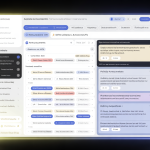
Introduction to Personalized Marketing: A Comprehensive Report
In today’s highly competitive and digitally driven marketplace, consumers are inundated with marketing messages.
To stand out, businesses must go beyond generic advertisements and deliver tailored experiences that resonate with individual customers.
Personalized marketing is the strategy that enables businesses to achieve this by using data to create more relevant and customized interactions.
This comprehensive report provides an in-depth look at personalized marketing, including its definition, importance, benefits, and challenges.
Definition of Personalized Marketing
Personalized marketing is a strategy that involves tailoring marketing messages, offers, and experiences to individual customers based on their preferences, behaviors, demographics, and past interactions with a brand.
Unlike traditional marketing, which targets a broad audience with a single message, personalized marketing leverages data and technology to deliver content that is specific to the needs and interests of each customer.
Personalized marketing can take many forms, including:
- Email Personalization: Sending targeted emails based on customer behavior, such as purchase history or browsing activity.
- Product Recommendations: Suggesting products or services that are relevant to a customer’s past purchases or interests.
- Dynamic Website Content: Customizing website content, such as homepage banners or product displays, based on the visitor’s profile.
- Personalized Advertising: Delivering ads that are tailored to individual users based on their online behavior and preferences.
Importance of Personalized Marketing
1. Enhancing Customer Experience
Personalized marketing is essential for enhancing the customer experience.
In a world where consumers expect brands to understand their needs and preferences, delivering personalized content can make interactions more meaningful and enjoyable.
By offering relevant recommendations and tailored experiences, businesses can create stronger emotional connections with their customers.
2. Increasing Customer Engagement
Personalized marketing helps increase customer engagement by delivering content that resonates with individual users.
When customers feel that a brand understands their needs, they are more likely to engage with the content, whether it’s opening an email, clicking on an ad, or making a purchase.
This heightened engagement can lead to increased brand loyalty and customer retention.
3. Driving Higher Conversion Rates
By delivering the right message to the right person at the right time, personalized marketing can significantly boost conversion rates.
Customers are more likely to respond positively to offers that are relevant to their interests, leading to higher sales and revenue.
For example, personalized email campaigns have been shown to generate higher open and click-through rates compared to generic emails.
4. Building Customer Loyalty
Personalized marketing plays a crucial role in building customer loyalty.
When customers feel valued and understood, they are more likely to develop a strong connection with the brand.
This can result in repeat purchases, positive word-of-mouth, and long-term loyalty.
Moreover, personalized marketing allows businesses to create a consistent and cohesive brand experience across all touchpoints, further reinforcing customer loyalty.
5. Gaining Competitive Advantage
In a crowded marketplace, personalized marketing can provide a significant competitive advantage.
Brands that excel in personalization are more likely to stand out and attract customers.
By offering unique and tailored experiences, businesses can differentiate themselves from competitors and establish a strong position in the market.
Benefits of Personalized Marketing
1. Improved Customer Satisfaction
One of the most significant benefits of personalized marketing is improved customer satisfaction.
When customers receive content that aligns with their preferences and needs, they are more likely to have a positive experience with the brand.
This can lead to increased satisfaction, positive reviews, and higher customer retention rates.
2. Higher Return on Investment (ROI)
Personalized marketing often results in a higher return on investment (ROI) compared to traditional marketing approaches.
By targeting specific segments of the audience with relevant content, businesses can maximize the effectiveness of their marketing efforts, reducing wasted resources and increasing the likelihood of conversions.
3. Enhanced Data Utilization
Personalized marketing leverages customer data to deliver targeted content, making it an effective way to utilize the vast amounts of data that businesses collect.
By analyzing customer behavior, preferences, and demographics, businesses can gain valuable insights and use them to inform their marketing strategies.
4. Increased Brand Loyalty and Retention
Personalization helps build strong relationships between customers and brands.
When customers feel understood and valued, they are more likely to remain loyal to the brand and continue making purchases.
This can lead to increased customer lifetime value (CLV) and long-term business growth.
5. Better Customer Insights
Personalized marketing provides businesses with deeper insights into customer behavior and preferences.
By tracking how customers interact with personalized content, businesses can gain a better understanding of what drives engagement and conversion.
These insights can be used to refine marketing strategies and improve future campaigns.
Challenges of Personalized Marketing
1. Data Privacy Concerns
One of the biggest challenges of personalized marketing is managing data privacy.
Consumers are increasingly concerned about how their data is collected, stored, and used.
To address these concerns, businesses must ensure that they are transparent about their data practices and comply with data protection regulations such as the General Data Protection Regulation (GDPR) and the California Consumer Privacy Act (CCPA).
2. Data Management and Integration
Personalized marketing requires access to a large amount of customer data from various sources, such as CRM systems, social media, and website analytics.
Integrating and managing this data can be complex and time-consuming.
Businesses need to invest in data management solutions that can aggregate and analyze data from multiple sources to create a unified customer profile.
3. Balancing Personalization and Privacy
Striking the right balance between personalization and privacy can be challenging.
While customers appreciate personalized content, they may also be wary of brands that appear to know too much about them.
Businesses must be careful not to cross the line between helpful personalization and intrusive marketing.
4. Technology and Resource Requirements
Implementing personalized marketing strategies requires advanced technology and resources.
Businesses need to invest in marketing automation platforms, data analytics tools, and AI-driven personalization engines.
Additionally, they need skilled personnel who can manage these technologies and create effective personalized content.
5. Maintaining Consistency Across Channels
Delivering a consistent personalized experience across multiple channels can be difficult.
Customers interact with brands through various touchpoints, including websites, social media, email, and in-store visits.
Ensuring that personalization is consistent across all channels requires seamless integration and coordination of marketing efforts.
Personalized marketing is a powerful strategy that enables businesses to deliver relevant and tailored experiences to individual customers.
By leveraging data and technology, businesses can enhance customer satisfaction, increase engagement, and drive higher conversion rates.
However, personalized marketing also comes with challenges, including data privacy concerns, data management complexities, and the need for advanced technology.
To succeed in personalized marketing, businesses must strike the right balance between personalization and privacy, invest in the necessary technology and resources, and ensure consistency across all channels.
As consumer expectations continue to evolve, personalized marketing will play an increasingly important role in helping businesses build strong customer relationships and gain a competitive edge in the market.


